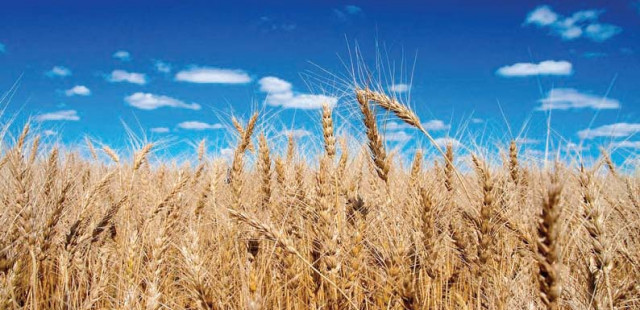Cutting out the middle man: PASSCO struggles to overcome inefficiency
Conceived as the ultimate disintermediator, the company serves as little more than a subsidy conduit.

It was founded to create an efficient domestic market for agricultural commodities, and occasionally correct market failures. Instead, the Pakistan Agricultural Storage and Services Corporation (Passco) has become little more than a highly inefficient conduit for delivering subsidies to farmers, a task at which most farmers allege it fails.
The company’s management claim that they are simply doing what they are told. “We are bound to obey government orders,” said Maj Gen Sohail Shafkat, the managing director of Passco. “What we procure and how much we procure is decided by the Economic Coordination Committee [of the cabinet]. We as a corporation only follow the orders.”
PASSCO was founded in 1974, with the aim to have the government directly intervene in agricultural commodity markets in order to ensure that farmers get a fair price for their product and that consumers are able afford basic necessities. The government has often used Passco to stabilise the prices of several food commodities, such as wheat, cotton, rice, pulses, potatoes, onions, and others.
Its main task these days, however, has been to act as the single largest buyer of the nation’s wheat stock, the eight largest wheat crop in the world.
Contrary to common perception, Passco does not actually procure the entirety of the crop. But by being such a large buyer present in virtually all major growing areas, Passco is effectively able to set the price for wheat and ensure that wheat-farming in Pakistan remains profitable enough for the country to remain self-sufficient in this staple crop.
Passco arranges for the funds to buy wheat primarily through bank loans, which carry the implicit guarantee of the government of Pakistan. They then sell the wheat to flour mills throughout the country at a price lower than what they bought the wheat for, in the hopes that the flour-millers will sell the flour for cheaper rates. The management, however, likes to claim that it is simply trying to create market efficiency without government assistance.
“We are a non-profit corporation. We have to sell out our reserves by calculating all costs, including our expenses and the interest on our loans,” Shafkat said. “We have never sold out the reserves below the calculated price. Otherwise, it would be hard to run the corporation.”
Yet Shafkat leaves out an important detail: the sale price is calculated bearing in mind the subsidy the federal government allocates. For the fiscal year ending June 30, 2012, the government allocated Rs18.7 billion for subsidies to be distributed through Passco.
One of Passco’s aims was to help cut out the several layers of middle-men between the farmer and the end-consumer. The company’s management acknowledges that it has largely failed in this endeavour. Most farmers prefer selling to middle-men at lower prices than the government’s support price simply because the process of selling to the government is highly cumbersome.
“We cannot avoid market forces,” said Shafkat. “Passco and provincial food departments only procure one-fourth of the total wheat crop. The rest is purchased by private buyers.”
The one big initiative that the company is undertaking to cut out the middlemen is to increase its storage capacity. Currently, Passco only has the capacity to store about 431,000 tons of wheat. Yet a Rs4.6 billion project – funded mostly by the Islamic Development Bank – will help raise that capacity to about 1.1 million tons. The project is expected to be completed by 2014.
“Once Passco’s storage capacity increases, the role of middle man would be eliminated gradually,” said Shafkat, somewhat optimistically. Pakistan’s total wheat production was 23.5 million tons in 2012.
Published in The Express Tribune, June 8th, 2012.



















COMMENTS
Comments are moderated and generally will be posted if they are on-topic and not abusive.
For more information, please see our Comments FAQ